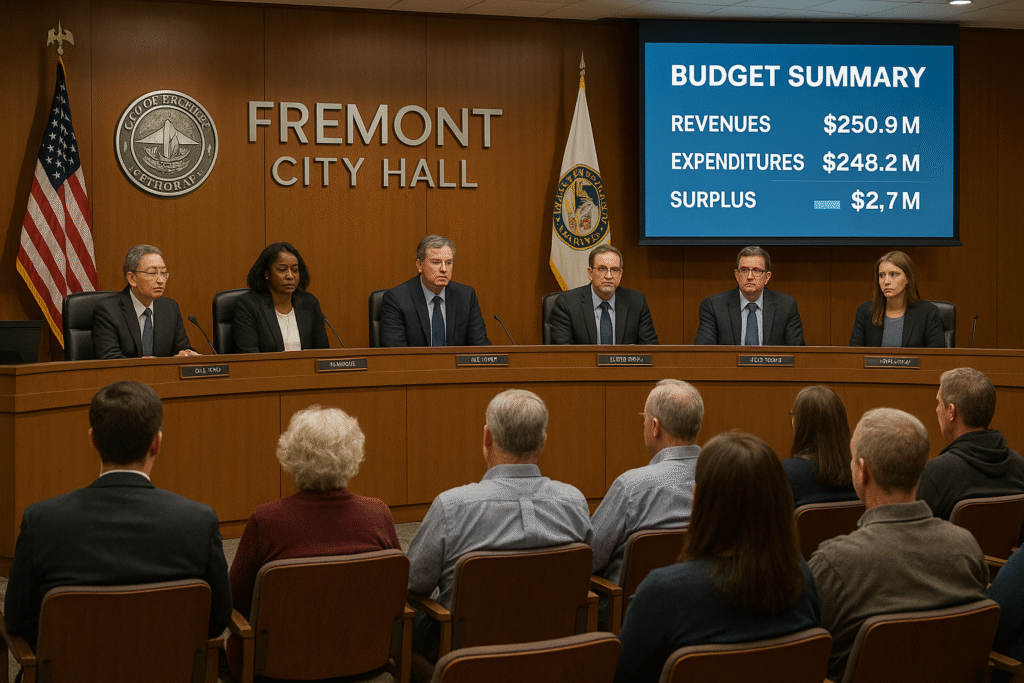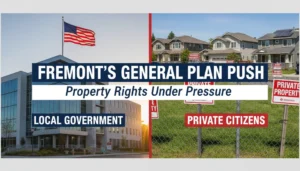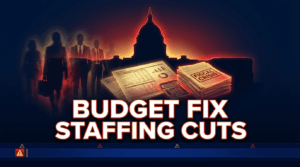Fremont City Budget Meetings and Financial Planning


Fremont City Budget Crisis: A Call for Fiscal Responsibility and Transparent Governance
The city of Fremont, California, finds itself at a financial crossroads. As the 2025/26 fiscal year approaches, the City Council has been engaged in a series of budget meetings, confronting a projected shortfall that threatens to compromise essential public services, law enforcement, and the city’s long-term growth. In these pivotal times, the need for fiscal responsibility, transparent governance, and conservative stewardship of taxpayer dollars has never been greater.
The Budget Shortfall: Facts and Figures
The latest figures presented at recent City Council meetings reveal a budget deficit that could reach into the tens of millions. The shortfall arises from a confluence of factors: lingering economic fallout from the COVID-19 pandemic, rising costs of public employee pensions, inflationary pressures, and a slowdown in sales tax revenue as consumers tighten their belts.
Fremont, like many California cities, faces the perennial challenge of balancing generous public employee contracts with the need to maintain roads, parks, and public safety. Over the past decade, the city’s operating budget has grown steadily, driven in part by escalating pension obligations and healthcare costs. While tax revenues have increased during economic booms, the city’s spending trajectory has now outpaced revenue growth.
Conservative Approach to Fiscal Management
For years, conservatives have warned about the dangers of unchecked government spending and the risks of relying on optimistic revenue forecasts. The current budget crisis in Fremont underscores the wisdom of prudent fiscal management, including:
- Living within our means: City government must prioritize essential services and eliminate wasteful spending.
- Transparency and accountability: Taxpayers deserve clear, honest communication about how their money is being spent.
- Resisting tax increases: Raising taxes should be a last resort, not a knee-jerk solution to every budget problem.
Instead of seeking easy revenue fixes, conservative leaders advocate for structural reforms that ensure long-term sustainability. This means renegotiating costly union contracts, reforming pension systems, and streamlining city departments to improve efficiency.
Budget Meeting Highlights: Tough Choices Ahead
The recent City Council sessions have been marked by spirited debate. City staff presented various scenarios, each involving difficult trade-offs:
- Public safety: Should the city reduce police overtime or delay hiring new officers?
- Parks and recreation: Will some community programs face cutbacks, or even closures?
- Road maintenance: With limited funds, which infrastructure projects can be postponed safely?
Conservative councilmembers pressed for a full audit of city departments, seeking to root out inefficiencies and redundancies before considering any tax proposals. “We owe it to Fremont families to scrutinize every line item,” said Councilmember Rajiv Kumar. “Our goal must be a lean, effective government that serves the people—not special interests.”
Taxpayers’ Perspective: Demanding Accountability
Public comment periods at the meetings have seen a steady stream of Fremont residents demanding greater accountability. Many voiced frustration with past spending decisions, arguing that city leaders have focused too heavily on pet projects and not enough on core services.
Local business owner Linda Chow echoed a common sentiment: “We work hard to keep our doors open, pay our taxes, and support our employees. City Hall needs to do the same—tighten its belt and stop treating taxpayers like a bottomless ATM.”
The Role of Public Employee Unions
One of the thorniest issues in Fremont’s budget crisis is the outsized influence of public employee unions. Over the years, generous contracts have been awarded, often with little public scrutiny. Pension costs, in particular, are consuming an ever-larger share of the city’s budget.
Conservative voices have called for greater transparency in contract negotiations and a reexamination of pension formulas. “Sustainable retirement benefits are important, but they cannot come at the expense of our city’s solvency,” said Fremont resident and fiscal watchdog Mark Johnson.
Alternative Solutions: Innovation and Privatization
Beyond budget cuts and pension reform, some conservative councilmembers have advocated for innovative, market-based solutions. Privatizing non-essential city services, embracing public-private partnerships, and leveraging technology to streamline operations could save millions while improving service quality.
For example, contracting out certain maintenance services or IT functions has worked in other cities, reducing costs and increasing efficiency. “It’s time for Fremont to think creatively and break free from the status quo,” said Councilmember Cynthia Lee.
Long-term Vision: Building a Resilient Fremont
While the current budget crisis demands immediate action, conservatives emphasize the importance of a long-term vision. Economic cycles are inevitable, but a city that budgets conservatively during good times is better prepared to weather downturns.
Key elements of a resilient city budget include:
- Building robust reserve funds: Saving during boom years provides a cushion during recessions.
- Prioritizing infrastructure: Maintaining roads, utilities, and public safety ensures a strong foundation for growth.
- Encouraging private investment: Streamlining regulations and supporting local businesses creates jobs and broadens the tax base.
Community Engagement and the Path Forward
As the Fremont City Council continues its budget deliberations, active community engagement is critical. Residents must stay informed, attend meetings, and hold their leaders accountable. Conservative voices play a vital role in advocating for fiscal discipline, transparency, and a government that serves the people—not the other way around.
The coming weeks will be decisive for Fremont. Whether the city embraces real reform or falls back on short-term fixes will shape its future for years to come. Now more than ever, a conservative approach—rooted in responsibility, accountability, and innovation—is the best path forward.













